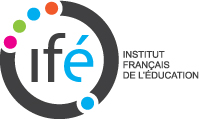
Référence : Pouille, J., Pansu, P., Jamain, L. - Bouffard, T. (2018). The effect of self-evaluation bias on reading performance in boys and girls at primary school. 29th International Congress of Applied Psychology, International Association of Applied Psychology (IAAP), Montreal (Canada), June 25-30.
Résumé : Negative bias of self-evaluation is widely recognized as harmful to learning. The effects of the classroom context on boys' and girls' learning performances are well known. We examined reading performance differences between boys and girls with a negative or a positive self-evaluation bias in a classroom context strongly/weakly evaluative. First, we used group-based trajectory modelling to identify pupils who have self-evaluation bias profiles among more than 500 pupils. Secondly, we selected only boys and girls who had a stable negative or positive self-evaluation bias profile (N = 100) to examine their reading performance in a classroom context strongly/weakly evaluative. In boys, we observed no difference in reading performance according to their self-evaluation bias, whereas in girls who had a negative self-evaluation bias, we observed a lower reading performance compared to those who overestimated their performance. Girls with a negative self-evaluation bias also underperformed compared to boys who underestimated themselves. The detrimental effect of negative bias in reading concerns girls regardless of the classroom context and the reading task. These results lead us to question the reasons why only girls underperform when they underestimate themselves. It is likely that the stereotypical belief that girls outperform boys in reading threatens girls. Our findings suggest that more attention should be paid to this deleterious effect on reading. We may wonder whether or not similar situation could be observed with boys in mathematics. From a pragmatic point of view, self-affirmation may be a potential means of reducing the deleterious effect of stereotype threat.

